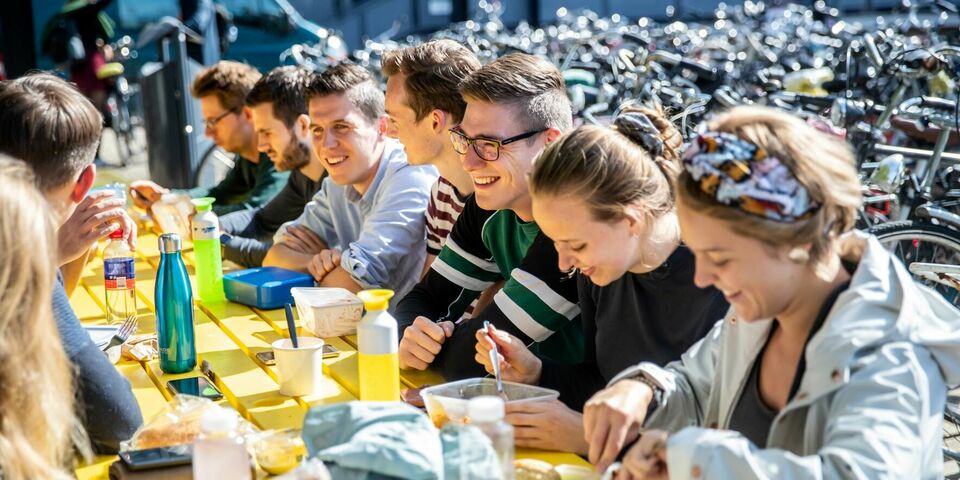UC | Preventing growing pains
TU/e wants to be a university that feels small but is big. What makes TU/e 'feel small' for a student? That you will be addressed by name during a lecture? That you receive personal guidance? A low student/teacher ratio? This probably varies from student to student, but if you ask me, having a close-knit community is one of the most important parts of it.
All students at our university will now be aware of the scale jump that TU/e is considering making. It aims to double the outflow of students by 2032 and increase the stay rate, being the number of graduates who continue to work in this region. This, to meet the demand from the Brainport region for highly educated employees.
With the scale jump, the number of master’s students will grow faster than the number of bachelor's students and the ratio in numbers between the two groups will therefore change. Now there are 5,100 master's and 7,100 bachelor's students, then those numbers are expected to increase to 11,200 and 9,000 respectively in 2032. A large part of that growth will consist of international students. Both developments create a different composition of the student community. So how do we make everyone feel at home and join the community?
In any case, by ensuring that the aforementioned (sub-)communities can grow at TU/e and that initiatives for new sub-communities are embraced. It must also remain possible for each sub-community to profile itself well in the (bachelor and master) introduction weeks. Here newcomers are introduced to what the TU/e community has to offer.
For example, do not replace visiting the associations with a city tour through Eindhoven. Watching the Evoluon will come later, first make friends. In addition, offer sub-communities the opportunity to organize events on the TU/e campus during the year. Do this by establishing clear rules, whereby the capacity of our beautiful campus can be used to the maximum.
Of course, municipal policy also influences the sense of community of students. Good cooperation between TU/e and the municipality is of great importance during growth. For example, the aforementioned events must fit within the rules imposed in TU/e's environmental permit. Other municipal matters, such as housing, can also be considered to affect the sense of community. Consider, for example, the trade-offs between building individualistic studios or homes with shared facilities.
My hypothesis is that a close-knit community will contribute to a high stay rate. In short, if you are an active part of the TU/e community during your student days, you will 'stick around' and after graduation you may work together with your friends from your student time at ASML, NXP, ProDrive or VDL ...


Discussion